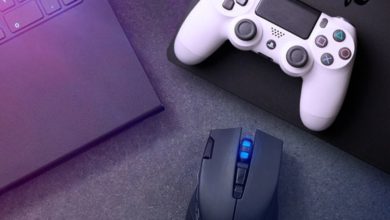7 Benefits Of Social Media In Healthcare

Social media continues to be a popular marketing tool for all kinds of businesses and industries because it is beneficial in many ways. However, little is known about the benefits of social media in healthcare. In this blog, we’ll be covering everything you need to know about social media marketing in healthcare.
The connection between social media and healthcare is powerful. A study found that over 40% of consumers feel the information they find on social media impacts the way they take care of their health. Social media is not devoid of misinformation, and not many people bother cross-checking the information they get there. But this scenario offers the perfect opportunity to all the genuine healthcare professionals to provide authentic health-related information to users, attract their attention, and gain their trust through social media.
There are a few rules to healthcare social media marketing, but let’s look at the various benefits of social media in healthcare.
1. Raise Public Awareness
One of the best uses of social media is to raise awareness around healthcare on a massive scale. For example, if you are a pediatrician, you can share helpful information related to common medical conditions amongst children. You can attract a lot of attention from the parents of young kids if you continuously keep sharing informative and interesting content for them on your social media.
There are many interesting ways of raising awareness through social media. You can share informative and creative content by using images or videos for your social media posts. Most of the social platforms have multiple features to release content as stories, short clips, or live videos instead of regular posts.
Another good option to raise awareness through social media is to direct people to your website or other credible public health sources. Since the start of the COVID-19 pandemic, people have routinely kept up with updates, news, and other information related to it. You can become an authentic source of information by directly sharing your known sources on your social media to help your followers.
2. Tackle Misinformation
Misinformation spreads rapidly on social media. Many fabricated news stories and click baits laid out by inaccurate sources cause grave panic amongst people.
As a healthcare professional, you can discuss any misinforming posts and comments and cite credible sources to clarify them. This can turn your social media space into an authentic source of information concerning healthcare. A good example of this is Dr. Peter Hotez’s Tweet on herd immunity to fight COVID-19.

3. Emergency Communication
Almost 4 out of 5 media internet users access news through social media. This means that social media platforms are key places to share breaking information. During emergencies, managing and sharing information related to healthcare becomes challenging.
4. Amplify the Reach of Existing Resources
Most medical professionals gather information through medical journals, research papers, and conferences. Social media helps to quickly share the existing information platforms with a large group of people.
Most in-person events have been canceled since 2020, leaving various international medical associations with no other choice but to hold conferences virtually. For example, the European Society of Intensive Care Medicine (ESICM) created a series of webinars and shared them on YouTube and Facebook. They also live-Tweeted their events, which to much their surprise, was received well. They grossed the highest viewership from outside of Europe, an impossible task with in-person events.
5. Respond to Common Queries
The general public relies on getting credible information from health authorities and healthcare organizations. Healthcare professionals can use various social tools to creatively address the common queries of people.
For instance, the World Health Organization addresses direct questions from people relating to COVID-19 through its Facebook Messenger chatbot.

6. Public Health Surveillance
People like to post about everything on their social media, including their health. When people use hashtags like #flu and #covid19 in their social media posts, it helps public healthcare associations identify the locations affected the most.
Social media tools can help you monitor public health in a better way and collect data in real-time. According to a recent study, health data from social sources has improved the way diseases are predicted.
7. Public Engagement
People freely share their opinions about almost everything yet refrain from discussing certain healthcare topics deemed as social stigma. Healthcare professionals can ease the tension surrounding such discussions by providing support to those seeking it through social media.
One of the best ways to create more noise around the topics like mental health or therapies is by running social media campaigns in collaboration with brands and celebrities.

Final Words
Social media is a great tool for you to become the most followed healthcare influencer, given you actively share relevant, informative, and interesting content regularly. Ensure that you create and maintain your presence on the right social media channels. Instagram, Facebook, Twitter, and YouTube are some of the most popular social media platforms on which users look for healthcare posts and updates.
To have an impressive social media presence, you need to have a good marketing strategy in place. The truth is that since so many people look for healthcare resources on social media, it gives opportunities to healthcare professionals to provide support directly to those seeking it. But being in the healthcare industry may not leave you all the time in the world to focus completely on social media marketing.
Practina is an all-in-one marketing tool that can automatically manage your social media. This low-cost system for healthcare professionals is integrated with multiple automated features. It can create and publish personalized branded posts to all your social media accounts at once. It also lets you run Google and social media ads almost instantly.





